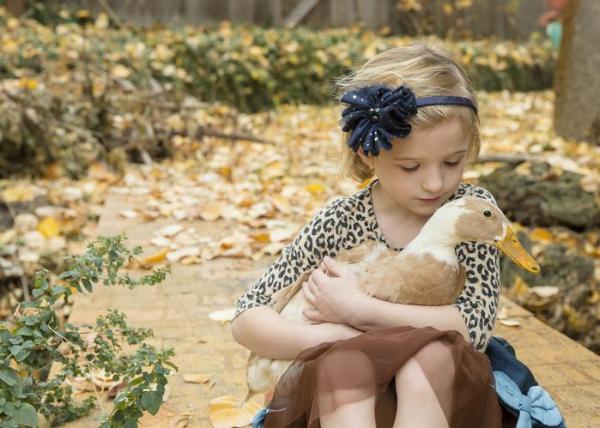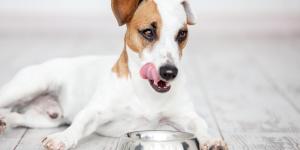What Not to Feed Ducks - Wild and Domestic Duck Diet


The Anatidae family is the collective term for what we commonly know as ducks. Within this family are many different breeds, such as the commonly represented Mallard or less well known breeds like the Muscovy duck. While we might think ducks consist on a steady diet of stale bread and crusts, they are actually omnivorous animals. They have a flat beak, short neck and rounded body. Their webbed feet are completely flat and their keep their slick wings tucked in to give them a unique portrait.
Most breeds of duck can used these wings to fly, but they are commonly spotted floating along the top of a pond or lake. It is here many people want to feed the ducks, but first we should know more about the duck diet. We are also seeing ducks being increasingly domesticated as pets. This is why AnimalWised tells you what not to feed the ducks so that you can choose the right snack for both the duck and their environment,
What do wild ducks eat?
Before we think about what to feed the ducks, we should take a look at a duck's diet. To know what ducks in the wild eat, we can think about their environment. Wild ducks live and develop in lakes, small channels of rivers and other bodies of water.
From these aquatic environments, wild ducks feed on plants, insects, seeds, algae and fish. Although they spend a lot of time on the water, ducks can also forage on the ground. Ducks have a ridge of ‘teeth’ on their bill known as a pecten. Ducks scoop food from the surface of the water and then filter out the moisture through this pecten. As a curious fact, they also scoop up bits of sand from the waterbed or riverbank which helps to grind their food and aid digestion.
What do domestic ducks eat?
When we think about keeping a duck as a pet, one of the first concerns is ensuring they are fed properly. Feeding of domestic ducks requires understanding their nutritional requirements and providing a balanced diet. As we state above, ducks are omnivorous animals, so the range of food we can offer them is greater than for other pets. To understand what not to feed ducks, we can start by showing you what they should be eating.
Although ducks are omnivorous, there are certain nutrients they need more than others. Proteins in the form of amino acids are very important, but this needs to be in a balance with other vitamins and minerals. It is also important to feed the right amount and type of food at different stages of development[1].
Cereals, legumes and seeds for ducks
Cereals are an important part of what we can feed ducks. The majority of commercial feed contains them, but it is possible to create a balanced feed at home. You can do this by using a combination of the following:
- Oats
- Rice
- Corn
- Wheat
- Green beans
- Haricot beans
- Millet
- Sunflower seeds
Fruit and vegetables for ducks
Fresh and natural foods are an essential source of vitamins and should never be missing from our duck's diet. Here are some of the vegetables for ducks which you can incorporate into their diet:
- Beetroot
- Green peas
- Fresh corn
- Cabbage
- Alfalfa sprouts
- Lettuce
- Bamboo shoots
- Carrot
- Cauliflower
- Peppers
- Cucumber
As fruit has a high sugar content, ducks will not be able to eat too much fruit. However, if given in moderation, you can provide the following for a duck's diet:
- Apple
- Pear
- Banana
- Cantaloupe
- Watermelon
- Grapes
- Pineapple
- Peaches
- Apricot
The fruit will often be too large for the ducks to digest. You should wash them thoroughly and cut them into bite size chunks.
Insects and other non vegetarian food for ducks
Remember, in the wild ducks will eat lots of other food in their environment, including living beings such as insects. These insects might be earthworms, grasshoppers, cochineals, crickets, snails or slugs. They may also consume crustaceans and fish found in waterways. If we are feeding them fish, it is best to remove bone to avoid choking.
Another surprising, but very beneficial food for ducks is eggshells. They are so good for them because they have concentrated calcium and protein. We can crush the eggshells up along with the shells of seafood and crumbling into their feed. Another option to provide calcium is to feed some natural sugar free yogurt.
Duck feed
To finish our report on food for ducks, we can take a look at commercial feed for ducks. This is a food which can be bought from specialist pet stores and is specially formulated to provide adequate nutrition for domestic ducks. We should point out that this is different from feed which is given to farmed ducks. The latter is used to fatten the ducks for meat and is not helpful for a domestic duck's quality of life and well-being. The ingredients they contain are not designed to make them live long, but simply to prepare them as a foodstuff[1].
When buying commercial duck feed, it is important to review the ingredients to ensure its quality. It should include some of the ingredients mentioned above in a variety as well as having sufficient vitamins and minerals. We should offer our ducks the amount suggested by the manufacturer, but bear in mind some duck species are larger than others. If we have any doubts, we can always consult a specialized veterinarian.
Advice for feeding the ducks
However, it is essential we emphasize that a domestic duck's diet should not rely on commercial feed alone. We need to introduce some fruit and vegetables, unprocessed cereals and fresh meat or fish. They will also need to have some special grit for ducks to help them with their digestion.
In combination with their appropriate diet, you will need to provide plenty of fresh water. We recommend renewing it a minimum of once or twice a day.

What do baby ducks eat?
Whether you are raising ducks or you have rescued some duck eggs which have hatched, you will need to know more about the diet of baby ducks. Paying close attention to their diet is important as it will affect the correct development of the ducklings.
After the first days of hatching, ducks should be fed duck feed which has been soaked in water. This is because baby ducks will not have the strength to feed from solid food. Soaking the water simulates the way baby ducks feed from regurgitated food of their mother. As baby ducks grow into ducklings, you can start introducing some foods which would be incorporated into the adult diet such as peas, worms, cooked vegetables and more. The ideal is to provide a diet which is varied, natural and complete.
Is bread bad for ducks?
In most towns, cities or even zoos, it is common to see these beautiful bird co-existing peaceably with humans. Unfortunately, it is also common to see these humans feeding the ducks with inappropriate food. While some of this food might be obviously bad for ducks such as candy, many people believe bread is appropriate for ducks. Although ducks love to eat bread, this does not mean it is good for them.
Bread is a food which is high in carbohydrates and is, therefore, harmful for ducks. Excessive intake of carbohydrates derived from food can lead to a condition known as ‘angel wing’. This is a condition which causes the last row of feathers on a duck's wing to fold to the side. This can result in the bird having serious difficulties in taking flight.
If you are in a park or zoo and want to feed the ducks, there are other options which will not harm their health. Zoos will often provide a feed which can be given to the ducks. You can also offer them small pieces of fish, fruit or vegetables we have mentioned in our list above.
In all cases, you should ensure the pieces are not excessively large. In the same way, don't forget that it is better to let the ducks be fed by responsible parties in your group. You can give food to children to feed the ducks, but it is inadvisable to let them feed the birds on their own.

What not to feed the ducks
As mentioned above, there are some food which we should not be feeding ducks. The following are food prohibited for ducks because they can seriously impact their well-being in a negative way:
- Bread
- Pastries
- Potato
- Sweet potato
- Popcorn
- Chocolate
- Soda
- Alcohol
- Candy
- Spinach
- Avocado
- Onion
- Garlic
- Nuts
- Lemon
- Orange
- Grapefuit
- Lime
Always check before feeding a duck if it is something they should be eating. Also be aware that harder and larger pieces of food ducks can eat, can still pose a choking hazard. If you have some experience having a duck as a pet, then please share your experiences in the comments below. You can tell us if they have a favorite treat or simply share some memories.
If you want to read similar articles to What Not to Feed Ducks - Wild and Domestic Duck Diet, we recommend you visit our Homemade diets category.







